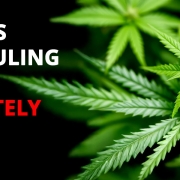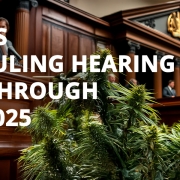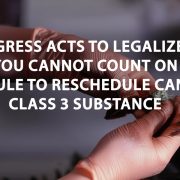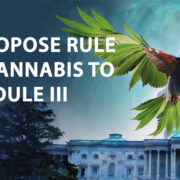Now That Pam Bondi Is Serving As Attorney General In Trump’s Second Term, How Will The U.S. Attorneys’ Office Support Or Hinder The Cannabis Industry?
During President Trump’s 2016 campaign, he supported medical marijuana and deferred recreational use decisions to individual states. However, his first administration took a stringent approach, with then Attorney General Jeff Sessions rescinding Obama-era guidelines that limited federal interference in state-legal cannabis activities.
The Growing Trend In Legalizing Cannabis – Current Standings:
Medical marijuana is legal in 39 states and Washington DC
The medical use of cannabis is legal (with a doctor’s recommendation) in 39 states and Washington DC. Currently, the 39 states with medical marijuana legal include Alabama, Alaska, Arizona, Arkansas, California, Colorado, Connecticut, Delaware, Florida, Hawaii, Illinois, Kentucky, Louisiana, Maine, Maryland, Massachusetts, Michigan, Minnesota, Mississippi, Missouri, Montana, Nebraska, Nevada, New Hampshire, New Jersey, New Mexico, New York, North Dakota, Ohio, Oklahoma, Oregon, Pennsylvania, Rhode Island, South Dakota, Utah, Vermont, Virginia, Washington and West Virginia. The medical use of cannabis is also legal in the territories of the Northern Mariana Islands, Guam and Puerto Rico.
Recreational marijuana is legal in 23 states and Washington DC
Twenty-three states and Washington DC, have legalized marijuana for recreational use — no doctor’s letter required — for adults over the age of 21. Those 23 states being Alaska, Arizona, California, Colorado, Connecticut, Delaware, Illinois, Maine, Maryland, Massachusetts, Michigan, Minnesota, Missouri, Montana, Nevada, New Jersey, New Mexico, New York, Ohio, Oregon, Rhode Island, Vermont, Virginia and Washington and the territories of the Northern Mariana Islands and Guam.
Recreational marijuana is legal in 6 tribal nations.
Six Tribal nations have legalized marijuana for recreational use. Those 6 tribes being the Flandreau Santee Sioux Tribe (South Dakota), Oglala Lakota Sioux Tribe (South Dakota), Suquamish Tribe (Washington state), Squaxin Island Tribe (Washington State), Eastern Band of Cherokee Indians (North Carolina) and St. Regis Mohawk Tribe (New York).
Conflict With Federal Law.
Under Federal law (Controlled Substances Act 21 U.S.C. 801) marijuana is designated as a Schedule I controlled substance due to the historical belief that it has a high potential for abuse, no currently accepted medical use in treatment, and lack of accepted safety for use under medical supervision.
What To Consider In A Second Trump Administration
During the 2024 election campaign, Trump expressed support for reclassifying marijuana from a Schedule I to a Schedule III substance under the Controlled Substances Act. He stated, “It is time to end needless arrests and incarcerations of adults for small amounts of marijuana for personal use.” He also voiced support for marijuana industry access to the banking system and the federal cannabis rescheduling process initiated by the Biden administration. Furthermore, Trump also endorsed Florida’s Amendment 3, a ballot initiative aimed at legalizing recreational marijuana for adults 21 and older. However, even though 55.9% of Floridians voted in favor of it (including Trump who is a Florida resident), the amendment in Florida did not pass as a 60% vote is required.
While Trump’s recent statements on cannabis suggest a shift toward reform, his administration’s past actions reflect a more stringent approach. Time will tell how the second Trump administration will handle cannabis. In the 2024 election, Republicans reclaimed a majority in the Senate and still control the House. As any president’s ability to unilaterally change federal marijuana laws is limited and favorable judicial intervention is unlikely, it is up to congress to launch substantial cannabis reform which under the current makeup of congress is more unlikely to happen.
Trump’s Nomination Of Pam Bondi for Attorney General
After former Representative Matt Gaetz withdrew his nomination as Attorney General, Trump tapped former Florida Attorney General, Pam Bondi, to be Attorney General. Compared to Gaetz, who has widely known pro-legalization stance on cannabis and had even vowed to “go easy” on the cannabis industry if he got the job, Bondi’s record on the issue is far less pro-reform. For example, as Florida’s Attorney General, Bondi opposed efforts to legalize medical cannabis. Additionally, during Trump’s first term in office, Bondi served on the President’s Commission on Combating Drug Addiction and the Opioid Crisis, which issued a report that expressed concerns about cannabis legalization.
But despite the possibility of a cannabis-friendly Department Of Justice, the cannabis industry still faces risks that non-cannabis businesses do not face.
Risk Of Losing All Bank Privileges
While states are opening their markets to marijuana, the illegality under Federal law still restricts cannabis businesses access to banking channels. On February 14, 2014, the Financial Crimes Enforcement Network (“FinCEN”) which is a division of the Department Of Treasury issued guidance (FIN-2014-G001) clarifying how financial institutions can provide services to marijuana-related businesses consistent with their Bank Secrecy Act (“BSA”) obligations, and aligned the information provided by financial institutions in BSA reports with federal and state law enforcement priorities. This FinCEN guidance issued by the Department Of Treasury was following the Cole Memo issued by the DOJ. But now that the Cole Memo has been rescinded, the FinCEN guidance is not has persuasive leading many banks to turn away cannabis businesses. For those cannabis businesses that have eluded banks with their true business activity (which such misrepresentation is also a Federal crime), those businesses run the risk of having their bank accounts shut down by the bank when the bank learns of their true business activity so it is important to secure qualified legal counsel to come up with solutions that will allow you to still conduct business and meet financial obligations.
Risk Of Getting A Big Tax Bill From IRS That You Cannot Pay
Generally, businesses can deduct ordinary and necessary business expenses under I.R.C. §162. This includes wages, rent, supplies, etc. However, in 1982 Congress added I.R.C. §280E. Under §280E, taxpayers cannot deduct any amount for a trade or business where the trade or business consists of trafficking in controlled substances…which is prohibited by Federal law. Marijuana, including medical marijuana, is a controlled substance. What this means is that dispensaries and other businesses trafficking in marijuana have to report all of their income and cannot deduct rent, wages, and other expenses, making their marginal tax rate substantially higher than most other businesses. A cannabis business that has not properly reported its income and expenses and not engaged in the planning to minimize income taxes can face a large liability proposed by IRS reflected on a Notice Of Deficiency or tax bill.
How Do You Know Which Cannabis Tax Attorney Is Best For You?
Given that cannabis is still illegal under existing Federal law you need to protect yourself and your marijuana business from all challenges created by the U.S. government. While cannabis is legal in California and several other states, that is not enough to protect you. It’s coming down that the biggest risk is TAXES. Your need to protect yourself and your investment. Level the playing field and gain the upper hand by engaging the cannabis tax attorneys at the Law Offices Of Jeffrey B. Kahn, P.C. located in Orange County (Irvine), the Inland Empire (Ontario and Palm Springs) and other California locations. We can come up with solutions and strategies to these risks and protect you and your business to maximize your net profits. Be proactive and engage an experienced Cannabis Tax Attorney in your area. Let the tax attorneys of the Law Offices Of Jeffrey B. Kahn, P.C. located in Orange County, Inland Empire (Ontario and Palm Springs) and other California locations protect you and maximize your net profits. And if you are involved in crypto currency, check out what a bitcoin tax attorney can do for you.










 Follow
Follow Follow
Follow